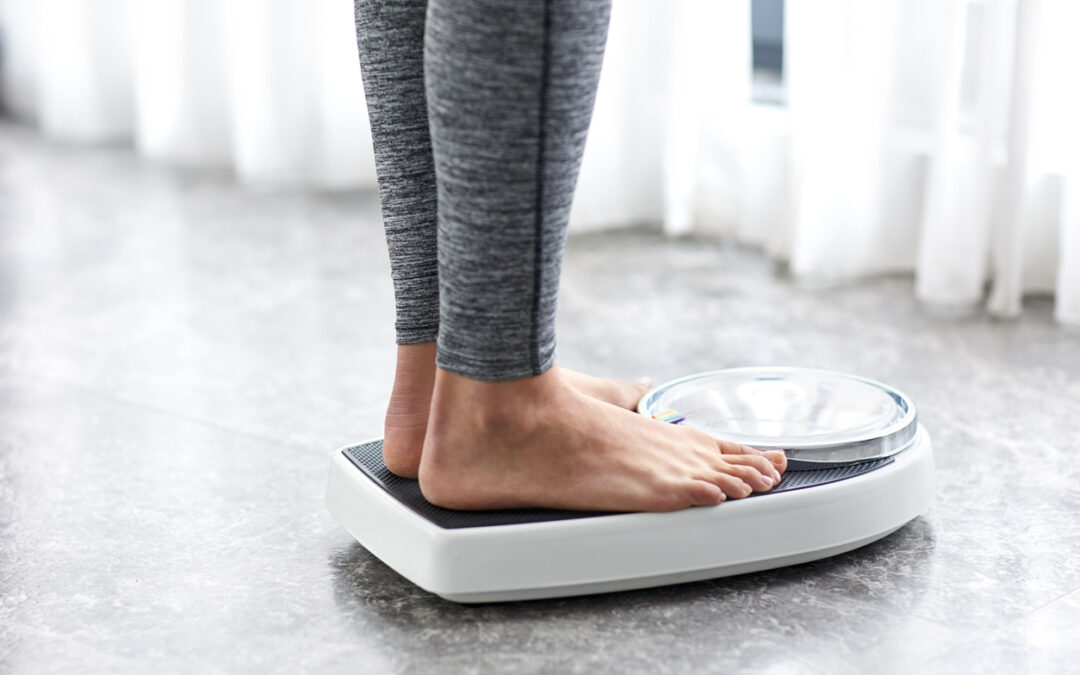What is hormone replacement therapy?
Hormone replacement therapy (HRT) is a treatment that involves replenishing hormones in a person’s body to its optimal level, and it is most often used in older adults, especially women in perimenopause or menopause.
As we age, our natural hormone production declines, which can lead to some of the common signs and symptoms of aging we experience, like hair loss, loss of muscle or bone density, low libido, and more. HRT can be used to help more effectively manage and treat these symptoms and help folks feel young again.
One of the questions we get asked most frequently when meeting with clients about hormone therapy is what possible side effects come with treatment, and concerns about weight gain tend to be the most frequent. It’s a common misconception that hormone therapy causes weight gain, but there’s no real scientific evidence to prove it.
In fact, one of the greatest benefits of hormone therapy is weight loss and improved muscle mass throughout the body.
Why do we gain weight as we age?
Weight gain can happen to any individual at any age, but it becomes much more common with age for a few different reasons.
First, as we get older, it becomes harder for the cells in our muscles to repair themselves when they become damaged, and if muscles are not repaired, they lose density at a faster rate and can’t burn calories as fast, either.
Second, we may simply not be as active as we get older, meaning we’re not burning calories as much as we once were, and muscle is not being built as effectively. When coupled with little to no change in diet, this can lead to weight gain (because we’re consuming more than we’re burning).
Lastly, our changing hormone levels may be throwing our systems out of whack and causing weight gain.
Hormones’ role in weight gain
Hormones play more of a role in weight gain than you might think, and this role is slightly different between men and women.
For women, declining estrogen levels can have an impact on how – and where – fat is stored in the body, making weight gain more noticeable. Secondarily, changes in mood or the body, in general, may make staying active and eating healthy more of a challenge. For example, women may be more fatigued during perimenopause and menopause and therefore less likely to work out as they did prior to menopause.
For men, on the other hand, declining testosterone levels can cause changes in how fat is distributed in the body and the body’s ability to grow muscle and burn calories. This lower efficiency can snowball over time: less muscle leads to lower calorie burn which leads to more fat – and the cycle repeats.
How does HRT help with weight loss?
While it’s commonly believed that hormone therapy causes weight gain, it can actually be used to prevent age-related weight gain and even promote weight loss. We have a whole other blog post about how HRT can help with weight loss, but to give you the basics…
In women, HRT brings a host of benefits related to weight loss, like…
- Maintaining muscle mass
- Decreasing loss of bone density
- Improved cell repair
- Improved mood
- Better, more rejuvenating sleep
In men, HRT can help with…
- Improved metabolism
- Increased energy levels
- Reduction in belly fat
- Improved blood sugar regulation
- Maintaining muscle mass
–
If you’ve been experiencing weight gain as a result of aging or a potential hormone imbalance, it may be time to seek support from a hormone therapy specialist – like the providers at 10X Health System!
Contact us to learn more about our unique approach to HRT and get started with comprehensive testing to see if HRT is right for you.








